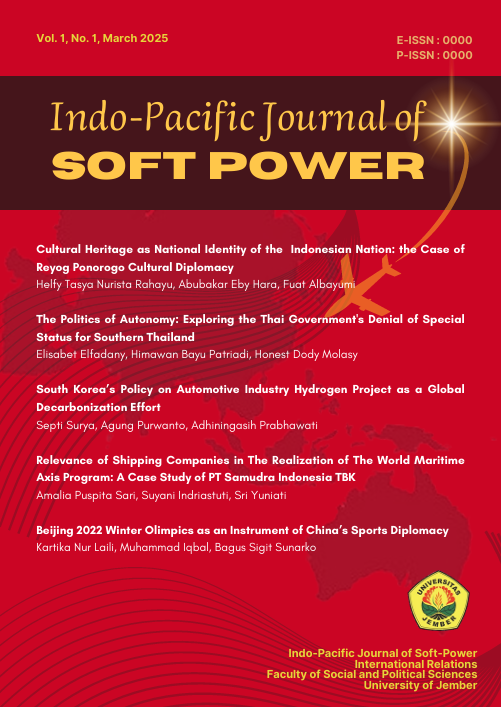Relevance of Shipping Companies in the Realization of the World Maritime Axis Program
A Case Study of PT Samudera Indonesia TBK
Keywords:
Trade, Multinational Corporation, Indonesia's sea policy, Global Maritime FulcrumAbstract
PT Samudera Indonesia as a non-state actor has a contribution to Indonesian maritime trade. However, the condition of Indonesia's maritime trade is still far from good criteria based on the Logistics Performance Index in 2014. At the same time, the Indonesian government is making efforts through an international maritime policy, namely the Global Maritime Fulcrum. This article explains the contributions made by the shipping company PT Samudera Indonesia Tbk as a non-state actor in realizing this policy so that makes it relevant. This article uses a descriptive-qualitative approach and uses purposive sampling techniques. By using Liberalism theory and the concept of multinational companies (MNC), it is hoped that we can analyze the studies discussed more objectively. The aim of this research is not only to find out the contributions and revelances of the company PT Samudera Indonesia Tbk itself, but also to find out the extent to which the government involves non-state actors to realize the World Maritime Axis policy. The research results show that PT Samudera Indonesia Tbk contributes to the World Maritime Axis policy, especially on the points of maritime connectivity and maritime culture.




